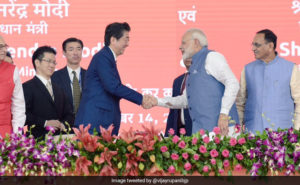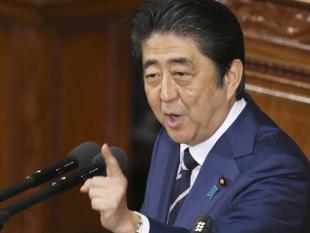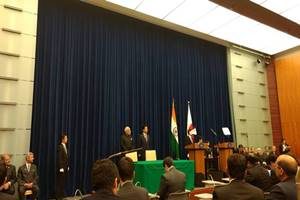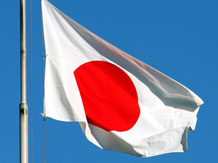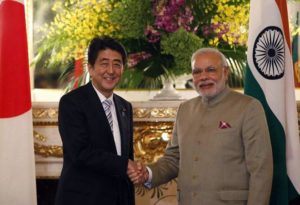 Prime Minister Shinzo Abe is visiting India nearly two months after operationalisation of the historic Indo-Japan civil nuclear deal, which has added a new dimension to bilateral ties that could scarcely be imagined in the wake of the 2011 Fukushima tragedy.
Prime Minister Shinzo Abe is visiting India nearly two months after operationalisation of the historic Indo-Japan civil nuclear deal, which has added a new dimension to bilateral ties that could scarcely be imagined in the wake of the 2011 Fukushima tragedy.
The journey traversed by the two nations over the past six years reflects growing confidence in each other and depth of the strategic partnership.
Japan and India signed a memorandum of understanding for civil nuclear cooperation in December 2015, when Abe was in Delhi for the annual bilateral summit, overcoming reservations over India’s status as a nation which has not signed the Non-Proliferation Treaty.
This was transformed into a deal in November last year when PM Narendra Modi was in Tokyo for the summit.
Subsequently the Japanese government got approval from the Diet (parliament) for the nuclear deal with India.The landmark deal came into force in July this year with the completion of necessary formalities in both countries. This will enable Japan to export nuclear power plant technology as well as provide finance for nuclear power plants in India.
Japanese conglomerate Toshiba, which owns US-based Westinghouse, will have a major role when the US nuclear firm supplies technology for the set of six reactors in Andhra Pradesh following its bankruptcy.
Westinghouse, which was to set up six nuclear reactors in Andhra Pradesh, will supply technology while construction will be undertaken by an Indian partner. This was discussed as a way out during Modi’s visit to Washington, D.C. for ensuring the presence of Westinghouse in India following the troubles the company faced over bankruptcy.
The partnership in space, like that on the African continent, will give a new dimension to the longstanding India-Japan ties. It makes sense for India to partner with Japan to focus such opportunities in areas where the two countries have complementary strengths. The space partnership will serve as another plank in the effort to present a counter to Beijing. For New Delhi, it is also a spring board for a bigger role in the global arena. India must seize this opportunity with a clear plan.
